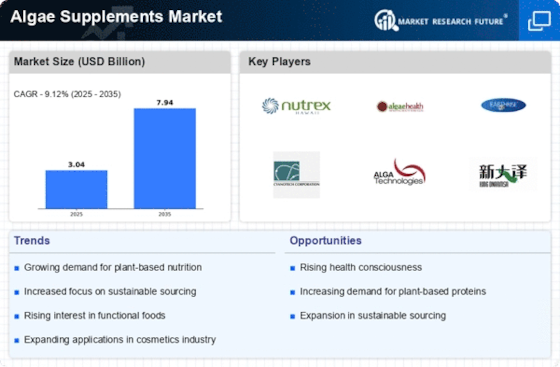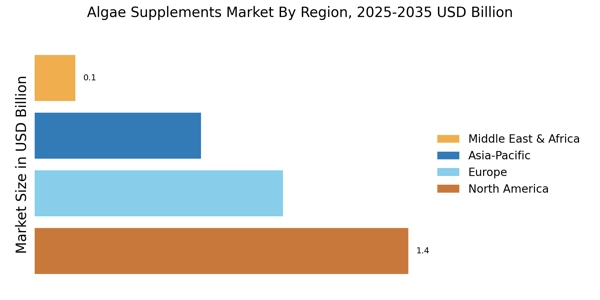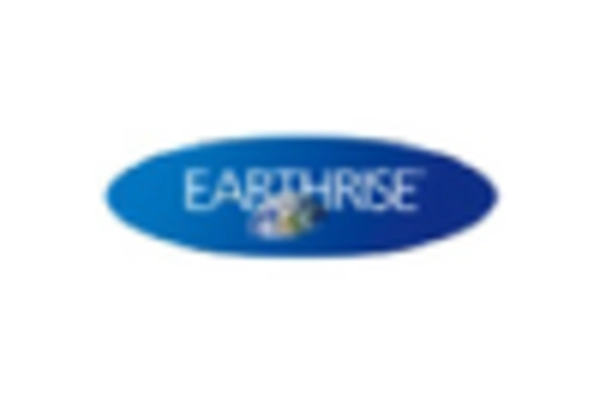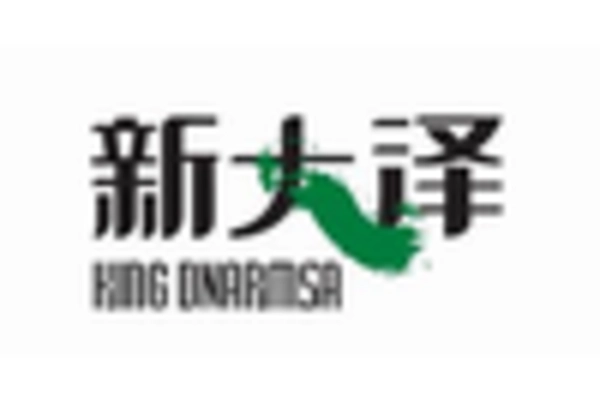Rising Health Consciousness
The Algae Supplements Market is experiencing a notable surge in demand driven by increasing health consciousness among consumers. As individuals become more aware of the benefits of nutrition, they are gravitating towards natural and nutrient-dense supplements. Algae, rich in proteins, vitamins, and omega-3 fatty acids, is perceived as a superfood that supports overall health. Market data indicates that the algae supplements segment is projected to grow at a compound annual growth rate of approximately 7% over the next five years. This trend reflects a broader shift towards preventive healthcare, where consumers prioritize dietary choices that enhance their well-being. Consequently, the Algae Supplements Market is likely to expand as more individuals seek out these products to complement their health regimens.
Rising Interest in Functional Foods
The Algae Supplements Market is experiencing growth due to the rising interest in functional foods. Consumers are increasingly seeking foods that provide health benefits beyond basic nutrition, and algae supplements fit this criterion perfectly. Rich in antioxidants, vitamins, and minerals, algae are recognized for their potential to enhance immune function, improve gut health, and support cardiovascular health. Recent studies indicate that the functional food market is projected to reach USD 275 billion by 2025, with algae supplements contributing to this expansion. As consumers become more proactive about their health, the Algae Supplements Market is likely to thrive, driven by the demand for products that offer specific health benefits.
Increased Adoption of Vegan and Vegetarian Diets
The Algae Supplements Market is benefiting from the rising adoption of vegan and vegetarian diets. As more consumers opt for plant-based lifestyles, the demand for alternative protein sources has intensified. Algae supplements, particularly spirulina and chlorella, are recognized for their high protein content and essential nutrients, making them attractive options for those seeking to meet their dietary needs without animal products. Recent market analysis suggests that the plant-based protein market is expected to reach USD 27 billion by 2027, with algae supplements playing a crucial role in this growth. This shift towards plant-based nutrition not only supports the Algae Supplements Market but also aligns with broader trends in sustainability and ethical consumption.
Growing Awareness of Environmental Sustainability
The Algae Supplements Market is increasingly influenced by growing awareness of environmental sustainability. Algae cultivation is recognized for its low environmental impact compared to traditional agriculture, as it requires minimal land and water resources. This aspect appeals to environmentally conscious consumers who are seeking sustainable dietary options. Furthermore, algae can absorb carbon dioxide and produce oxygen, contributing positively to the ecosystem. As sustainability becomes a key consideration in consumer purchasing decisions, the Algae Supplements Market is likely to see enhanced growth. Market projections indicate that the demand for sustainable food sources will continue to rise, positioning algae supplements as a viable choice for eco-friendly consumers.
Technological Advancements in Cultivation and Processing
The Algae Supplements Market is poised for growth due to technological advancements in algae cultivation and processing. Innovations in biotechnology and cultivation techniques have improved the efficiency and yield of algae production, making it more economically viable. Enhanced extraction methods have also increased the bioavailability of nutrients in algae supplements, thereby improving their effectiveness. As a result, manufacturers are able to offer higher quality products that meet consumer expectations. Market data suggests that the algae-based products segment is expected to witness a significant increase in market share, driven by these advancements. This trend indicates a promising future for the Algae Supplements Market as it adapts to evolving consumer demands.

















